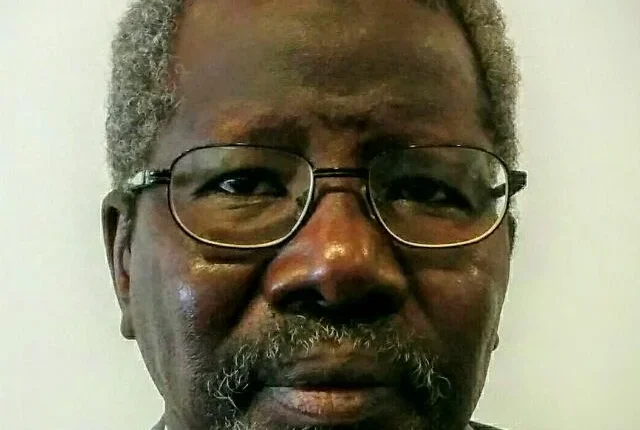Urgent Sovereign Duties: Scholar Calls on Sudan’s Leadership to Refocus National Priorities

Hassan Issa Al-Talib
Analysis by Ramadan Ahmed – Sudanhorizon
In a powerful commentary on the current state of governance in Sudan, academic and political observer Dr Hassan Issa Abu Talib has called on the country’s Sovereign Council to urgently shift its focus from ceremonial engagements to core national responsibilities. His remarks come amid growing public concern over the lack of strategic direction from the country’s highest authority.
Following the expansion and completion of the Sovereign Council’s membership—with optimism heightened by the inclusion of women in its ranks—many Sudanese hoped for a meaningful shift towards visionary, high-level governance. However, Dr Al-Talib argues that the council’s activities have fallen short of expectations.
“Council members have increasingly taken on the role of field inspectors—visiting states, appearing in news bulletins, and engaging with local officials and citizens primarily in their areas of origin,” Dr Al-Talib observed. While such engagements may have value in normal times, he warned that excessive focus on these activities risks undermining institutional functions and squandering limited public resources.
“These visits come at a cost to a treasury already stretched thin—resources that could otherwise serve urgent humanitarian needs, such as the hunger crisis in besieged Al-Fashir,” he added.
Call for a National Consultative Council
Among the key recommendations in his commentary, Dr Al-Talib urged the immediate formation of a temporary national consultative body to serve a parliamentary role during the transitional period. He noted that while Sudan currently has interim judicial and executive authorities, it lacks a corresponding legislative voice that reflects the will of the people, particularly from the country’s 18 states.
Such a body, he argued, should be non-partisan, inclusive, and formed through popular consultation and consensus—free from political factions or ideological agendas. Its functions would include public oversight, national consultation, proposal of policy initiatives, and performance evaluation.
Restoring National Direction Post-Conflict
Dr Al-Talib stressed that the Sovereign Council must fulfil the responsibilities typically assigned to an elected head of state, especially in mapping a post-war national recovery strategy. This includes guiding the executive branch in setting key foreign policy priorities, overseeing international agreements, and endorsing legislation passed by the future consultative council.
He criticised the political vacuum that has persisted since April 2019, stating that the absence of a representative legislative body has allowed a small elite—often selected behind closed doors in Khartoum—to dominate the national discourse. This situation, he argued, was laid bare by the events of the 15 April 2023 armed rebellion, which exposed the fragility of the transitional arrangements.
Establishing National Commissions
Dr Al-Talib also proposed the creation of specialised national commissions, including:
A National Advisory Commission composed of professional experts to offer technical support to ministries, many of which are currently led by individuals lacking experience in national administration.
A Commission for Rights and Compensation to address injustices dating back to 2019, including unlawful dismissals, administrative marginalisation, and to ensure restitution for victims of war and state oppression.
A Call for Strategic Governance
Concluding his remarks, Dr Al-Talib urged the President of the Sovereign Council, General Abdel Fattah Al-Burhan, to lead the charge in establishing these long-overdue institutions.
“Running a state goes far beyond issuing decrees or making endless visits. It requires purposeful planning, the mobilisation of trustworthy national expertise, and broad-based public consultation,” he said.
Invoking sacred texts and prophetic wisdom, he reminded the country’s leadership:
“Ask the people of knowledge if you do not know” and “Consult them in affairs”—emphasising that sound consultation is the foundation of wise governance.
Shortlink: https://sudanhorizon.com/?p=6836

